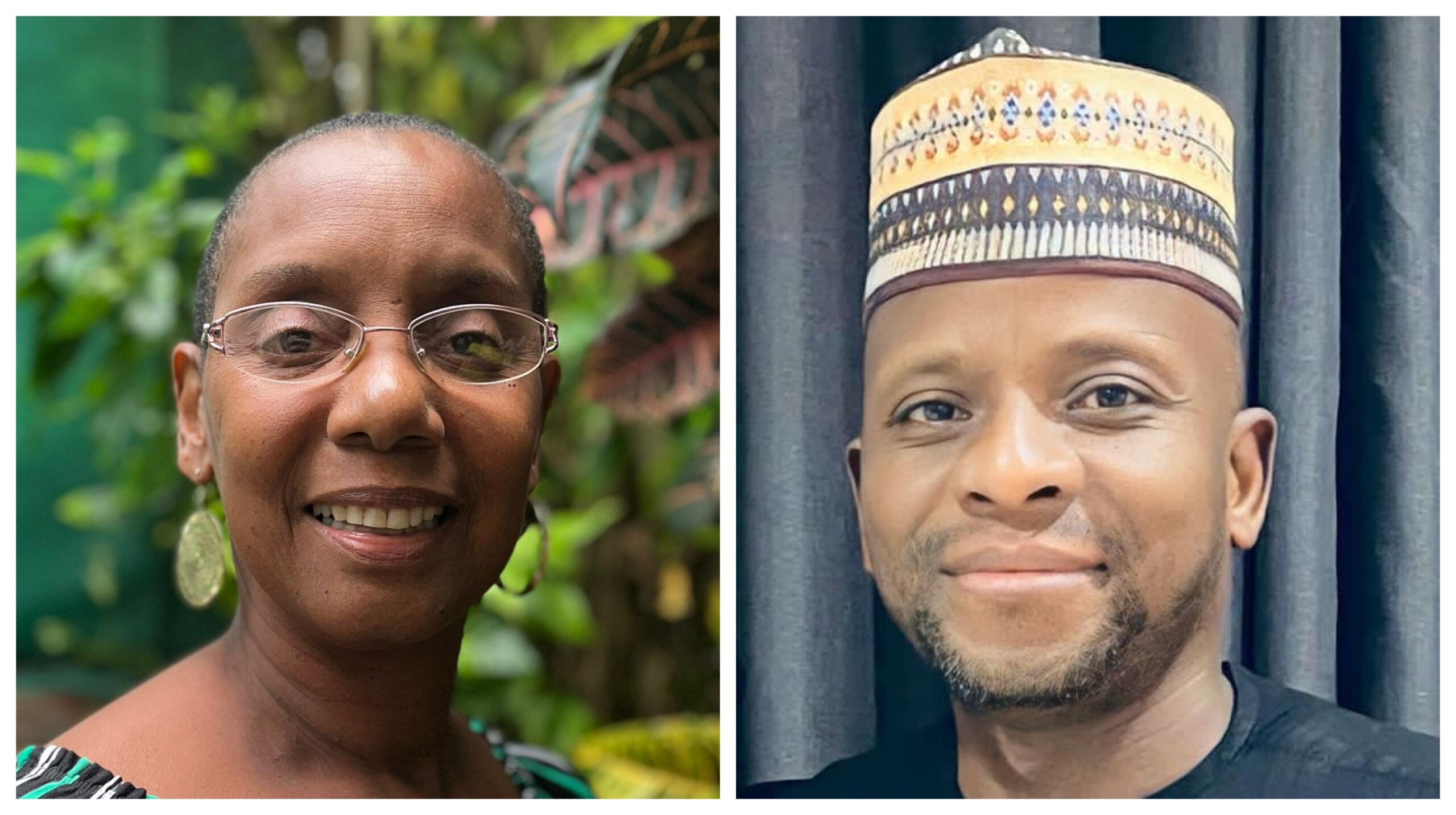
Throughout the month of March, McGill is hosting its first two Provostial Visiting Fellows-in-Residence on Black Life and History. The initiative stems from the McGill Action Plan to Address Anti-Black Racism.
Professor Dennis Pérez Chacon is an expert in education, participatory action research, disease control, and social development. Professor Samaila Suleiman studies the intersection of historiography, identity, and the politics of knowledge production in Africa. Both are in Montreal to collaborate with McGill peers and students but also to inform and inspire those looking to pursue research or studies in areas of Black Life and History.
“We extend a warm welcome to Professors Suleiman and Perez. The presence of such esteemed international scholars, with intricate knowledge of Black experience and Black life, will contribute to McGill academic excellence,” says Karen Diop, associate director, Black Inclusion, Success and Strategic Initiatives, and member of the fellowship selection committee.
“We also extend our thanks to some of our newest Black faculty members for these collaborations, which we expect will lead to new partnerships for other colleagues and for our students.”
Samaila Suleiman, History, Bayero University, Kano, Nigeria
“I’m excited to be one of the inaugural fellows,” said Suleiman, explaining how the opportunity was presented to him by Professor Rhoda Nanre Nafziger of the Department of Integrated Studies in Education.
“I’m looking forward to engaging with scholars and students, building networks, and continuing my research at McGill, because Dr. Nafziger and I have been collaborating for a few years already,” he said.
Based in Nigeria, Suleiman has delivered guest lectures and papers at universities across the globe and received numerous fellowships and appointments, including currently serving as West Africa member of the Steering Committee of the Higher Education and SDGs Network, Association of Commonwealth Universities.
During his time at McGill, Suleiman will co-lead a seminar on the politics of archives in Nigeria and other parts of the African continent as well as offering a keynote lecture entitled: “The Politics of Erasure: Dissident Memories and the Struggle for Historical Justice in Nigeria.”
“I will be focusing on the politics of erasure associated with the making of national history in post-colonial Nigeria and the rise of counter narratives of marginalization, war trauma and genocide, the narrative of Hausa-Fulani Hegemony, and Islamization.”
“The rising wave of historical reckoning associated with social movements like Black Lives Matter, and Rhodes Must Fall, and calls for historical justice, not only coincides, but also resonates with deep-seated asymmetries of history education and memories of past injustices in postcolonial Nigeria. In this lecture, I argue that the Nigerian version of historical reckoning, as evident in historical texts, museums, archives, and the popular media, reflect not only the broader tension between distinct intellectual trends and political agendas in Nigeria, but also the fragility of a postcolonial state grappling with complex histories of injustice and competing visions of historical Justice,” said Suleiman.
“His work on history is important, particularly now as struggles around history education is raging in North America. I think his talk is going to enrich discussions that show how Black history is contested, not only in places where Black people are minorities but also in places where Black people are majority,” said Nafziger.
Dennis Pérez Chacón, Sociology, Pedro Kourí Institute, Havana, Cuba
Professor Pérez will also be presenting a keynote lecture through her collaboration with the School of Population and Global Health. She will examine challenges, opportunities, and advances on health inequalities research, sharing examples on prevention and control of infectious diseases, notably Dengue, Tuberculosis, HIV/AIDS, and SARS-CoV-2/COVID-19.
“At the very beginning on my research journey, it was quite surprising that there were few studies interested in how equity dimensions at territorial and individual levels, such as organization of health services and access, gender, age, race/ethnicity, and income, among others, explained unfair observable differences in the distribution of population health,” said Pérez.
“When health research and interventions are not aware of equity-related issues, they are prone to reinforce stereotypes and stigmatization patterns, reproduce preexisting inequities, and, consequently, limit or reduce their potential behavioral impact on people with an increased vulnerability to diseases,” she said.
In addition to sharing research findings during her fellowship, Pérez will share her personal journey as an Afro-Latina scholar.
“Along my career I have faced several challenges. As a sociologist working in a biomedical institution, I have had to “learn by doing” in order to conduct up-to-standards scientific research. While looking to fill some of the knowledge gaps on infectious diseases prevention, I developed participatory, theory-based, and qualitative approaches for a mainly quantitative context.”
Pérez’s candidacy as a Fellow-in-Residence was put forth by Professor Mabel Carabali, an Assistant Professor in the Department of Epidemiology, Biostatistics, & Occupational Health. Perez and Carabali have been collaborating on different research projects integrating social sciences into infectious diseases research. They also share the ability to give voice to Black scholarship from Latin America – often overlooked as part of the broader Black diaspora.
“Inequalities in general, and racial/ethnic inequalities, specifically in Latin America, are overlooked issues. This lack of recognition stems from the lack of formal recognition of racism and discrimination and the absence of data,” said Carabali.
“Dr. Perez embodies the Afro-Latino identity that is both a testament to the challenges of being a Spanish-speaking Black woman in academia and a pioneer changing the landscape of research on addressing social issues across several infectious diseases,” added Carabali.
To learn more about the Provostial Visiting Fellows-in-Residence on Black Life and History, visit the program’s webpage.
